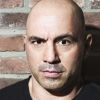10 Genetics Books That Will Change How You See DNA
Recommended by Bill Gates, Arianna Huffington, and Venki Ramakrishnan, these Genetics Books offer expert guidance for curious minds







What if the secrets to our very existence lay encoded in strands of DNA, waiting for curious minds to unlock their mysteries? Genetics stands at the crossroads of science, ethics, and human identity, reshaping medicine, agriculture, and our understanding of life itself. As gene editing tools like CRISPR redefine possibilities, grasping these advances is more urgent than ever.
This landscape is illuminated by voices such as Bill Gates, whose passion for innovation drives him to spotlight breakthroughs like those chronicled in The Code Breaker. Pulitzer Prize-winning author Siddhartha Mukherjee and Nobel laureate Jennifer Doudna offer narratives blending scientific rigor with human stories, deepening your appreciation of genetics' power and promise. Their work captures both the exhilaration of discovery and the weight of ethical responsibility.
While these expert-curated books provide proven frameworks, readers seeking content tailored to their specific background, goals, and interests might consider creating a personalized Genetics book that builds on these insights. This approach helps bridge foundational knowledge with your unique learning journey.
Recommended by Bill Gates
Co-Founder & Former CEO of Microsoft
“.@WalterIsaacson is one of my favorite authors. I was eager to read his latest book about CRISPR and its inventor Jennifer Doudna:” (from X)
by Walter Isaacson··You?
Drawing from decades as a historian and former Aspen Institute CEO, Walter Isaacson crafts a narrative that goes beyond mere scientific milestones to explore the human drive behind gene editing. You’ll gain insights into the discovery and development of CRISPR, understanding not only the technology but also the ethical debates it ignites, such as gene modification and its societal impact. The book offers detailed portraits of Jennifer Doudna and her collaborators, revealing how curiosity and persistence shaped a tool that may redefine medicine and human evolution. If you're interested in how cutting-edge genetics intertwines with real-world dilemmas and future possibilities, this book will engage your critical thinking and ethical considerations.
Recommended by Paul Berg
Nobel Prize Winner
“The Gene is a magnificent synthesis of the science of life, and forces all to confront the essence of that science as well as the ethical and philosophical challenges to our conception of what constitutes being human.” (from Amazon)
by Siddhartha Mukherjee··You?
by Siddhartha Mukherjee··You?
What happens when a cancer physician with a rich academic background turns his attention to the story of human heredity? Siddhartha Mukherjee, trained at Stanford, Oxford, and Harvard Medical School, offers a deeply researched narrative tracing the gene's history from ancient philosophers to modern genome mapping. You encounter not just scientific milestones but also the ethical dilemmas and personal stories woven through genetics research, including Mukherjee's own family's struggles with mental illness. The book guides you through complex topics like gene function and inheritance with clarity, making it ideal if you want a nuanced understanding that blends science, history, and human experience. This book suits those ready to engage with genetics beyond the surface, appreciating its profound implications and ongoing mysteries.
by TailoredRead AI·
This personalized book delves into the fundamental principles of genetics with a focus tailored to your background and interests. It explores core concepts such as DNA structure, gene function, inheritance patterns, and molecular biology to build a solid foundation. Beyond basics, it examines contemporary applications including genetic technologies, genome editing, and ethical considerations, matching content to your specific learning goals. By blending established knowledge with your unique needs, this book reveals a clear and engaging pathway through complex genetic topics. It offers a customized learning experience that deepens understanding and supports mastery of genetics essentials with precision and enthusiasm.
Recommended by Carl Zimmer
Author of heredity-focused books
“An enlightening introduction to what scientists have learned in the past decade about [epigenetics].” (from Amazon)
When Nessa Carey first explored the rapid evolution from traditional genetic modification to CRISPR gene editing, she uncovered a technology that challenges not just science but ethics and society. This book walks you through the mechanics of gene editing with clarity, explaining complex concepts like CRISPR’s precision and potential applications, including disease treatment and biohacking. You'll gain insight into the ethical debates surrounding inheritable gene changes and the governance challenges that come with powerful biotech tools. Ideal for those curious about molecular biology’s cutting edge, it balances scientific detail with accessible explanations, especially in chapters detailing gene editing techniques and real-world examples.
Recommended by Arianna Huffington
Co-Founder of The Huffington Post
“A Crack in Creation, by one of the most pioneering women in science, is both exhilarating and frightening. Jennifer Doudna and her co-author Samuel Sternberg challenge us to confront the possible dangers of gene editing, even as we embrace its incredible potential. This book is a roadmap to our future.” (from Amazon)
by Jennifer A. Doudna, Samuel H. Sternberg··You?
by Jennifer A. Doudna, Samuel H. Sternberg··You?
Jennifer A. Doudna, a Nobel Prize-winning biochemist, brings unmatched authority to this exploration of CRISPR gene editing technology. You’ll gain insight into how CRISPR functions at the molecular level, its revolutionary potential to treat diseases like HIV and cancer, and the ethical debates surrounding editing human embryos. The book weaves scientific discovery with personal narrative, offering detailed chapters on the technology's development and societal impact. If you're interested in genetics, biotechnology, or bioethics, this book provides a clear-eyed look at the power and responsibility that come with rewriting the code of life.
Recommended by Jane Goodall
Primatologist and conservationist
“Without doubt, one of the most important books of the last 50 years. I shall urge everyone I know who cares about life on earth, and the future of their children, and children’s children, to read it. Steven Druker is a hero. He deserves at least a Nobel Prize.” (from Amazon)
by Steven Druker··You?
Steven Druker's background as a public interest attorney who compelled the FDA to disclose its genetically engineered food files shapes this book's critical perspective. You learn how the genetic engineering venture bypassed scientific norms and regulatory safeguards, with detailed accounts of institutional complicity and misinformation spanning decades. The book breaks down complex issues like FDA regulatory failures and the distortion of biological science, offering you a lens to evaluate the safety and politics behind genetically engineered foods. If you're concerned about food safety, scientific integrity, or policy influence, this book delivers a thorough, evidence-based critique that challenges mainstream narratives.
by TailoredRead AI·
This tailored book explores gene editing through a unique, 30-day guided experience designed to match your background and specific interests. It covers foundational concepts and advances in gene editing technologies, with a clear focus on practical understanding and application. The personalized content reveals the science behind CRISPR and other tools, helping you grasp complex topics through a structured yet accessible pathway. By tailoring the book to your goals, it offers a focused journey that bridges expert knowledge with your learning pace, making the subject approachable without overwhelming details. This approach enhances your grasp of gene editing's potential and challenges, preparing you to engage thoughtfully with this transformative science.
by Jamie Metzl··You?
After analyzing cutting-edge research and geopolitical trends, Jamie Metzl developed this exploration of genetic engineering's profound impact on humanity's future. Drawing from his experience in international policy and genome editing governance, Metzl presents detailed insights into how technologies like CRISPR could reshape reproduction, health, and evolution. You’ll gain a nuanced understanding of ethical dilemmas and technological advances through chapters examining gene editing applications and regulatory challenges. This book suits anyone curious about the intersection of genetics, technology, and society, especially those interested in the practical and moral questions shaping our species' next steps.
Recommended by Norbert Perrimon
Harvard Medical School geneticist
“Krishnarao Appasani has assembled a comprehensive series of up-to-date chapters on endonuclease-based genomic engineering by experts and practitioners. The book presents a wide range of topics from basic science, applications to genetic screens and diseases, and legal and ethical issues. The many potential applications across a wide range of organisms are well illustrated. The book will become a must have for any researchers in academia and industry trying to keep up with this fast-moving field.” (from Amazon)
by Krishnarao Appasani, George M. Church··You?
by Krishnarao Appasani, George M. Church··You?
What happens when a leading biotech entrepreneur teams up with a Harvard genetics professor? Krishnarao Appasani and George M. Church delve into the fast-evolving world of genome editing using TALENs, ZFNs, and CRISPR technologies, offering you clear insights into both the science and applications. You’ll explore how these tools are revolutionizing research in cancer, cardiovascular, and immunological diseases, plus the ethical and legal questions they raise. The book’s chapter on molecular surgery and its potential clinical uses provides concrete examples, making it especially useful if you work in biotech or medical research.
Recommended by Sam Altman
CEO of OpenAI, Former Y Combinator CEO
by J. Craig Venter·You?
by J. Craig Venter·You?
Drawing from his groundbreaking work in genomic research, J. Craig Venter offers a personal and technical journey through the sequencing of the first human genome. You’ll gain insight into the scientific challenges and innovations that shaped modern genetics, as well as the author’s unconventional path from military service to pioneering researcher. The narrative delves into specific milestones like his NIH tenure and early sequencing projects, revealing both the scientific rigor and human drive behind this transformative era. If you want a detailed understanding of the genome sequencing process and its historical context, this book provides an engaging, firsthand perspective.
Recommended by Michael Shermer
Publisher of Skeptic Magazine, Chapman University Fellow
“Congratulations to @love_Neand Svante Pääbo. Well deserved. He lectured for me at Caltech on his new research/book In Search of Lost Genomes, one of the best talks we ever hosted. See how it all began here:” (from X)
by Svante Pääbo··You?
by Svante Pääbo··You?
Svante Pääbo invites you into the complex world of ancient DNA, tracing the elusive genomes of Neanderthals that have reshaped our understanding of human evolution. Drawing on his leadership at the Max Planck Institute and pioneering work in paleogenetics, he reveals how decoding these lost genomes sheds light on our shared ancestry and the genetic legacies still present today. You’ll gain insight into the scientific breakthroughs behind sequencing ancient DNA, including challenges of contamination and degradation, and the surprising discoveries about human-Neanderthal interbreeding. This book offers a detailed yet approachable journey for anyone curious about genetics and human history, though those seeking a purely clinical genetics textbook might look elsewhere.
by Ben Lynch ND.··You?
What if everything you knew about genetics was wrong? Dr. Ben Lynch argues that many chronic illnesses stem not from fixed genes but from 'dirty' genes—those that are either inherently flawed or affected negatively by lifestyle and environment. Drawing from his naturopathic background and thousands of patient cases, Lynch teaches you to identify and 'clean' these genes through personalized plans involving diet, sleep, stress management, and detoxification. You gain practical insight into how your choices can rewrite your genetic expression, particularly in chapters detailing specific gene types and their triggers. This book suits anyone curious about the intersection of genetics and holistic health, especially those grappling with unexplained health issues or chronic conditions.
Get Your Personal Genetics Guide in 10 Minutes ✨
Stop wading through generic advice. Receive tailored genetics insights that fit your background and goals.
Trusted by genetics enthusiasts and experts worldwide
Conclusion
Together, these 10 Genetics books weave a rich tapestry of discovery—from the dawn of heredity study to the cutting edge of genome editing. You'll find themes of innovation, ethical quandary, and the human quest to understand life at its most fundamental level.
If you're grappling with the ethical dilemmas of gene editing, start with A Crack in Creation and The Code Breaker for firsthand accounts of CRISPR’s impact. For historical depth and scientific narrative, combine The Gene and A Life Decoded. Those chasing practical biotech applications will gain from Genome Editing and Engineering and Hacking the Code of Life.
Alternatively, you can create a personalized Genetics book to bridge the gap between general principles and your specific situation. These books can help you accelerate your learning journey and engage with genetics on your own terms.
Frequently Asked Questions
I'm overwhelmed by choice – which book should I start with?
Start with The Code Breaker for a compelling narrative on gene editing innovations and their ethical implications. It offers a great balance of science and storytelling, setting a solid foundation for deeper exploration.
Are these books too advanced for someone new to Genetics?
Not at all. Books like The Gene and Hacking the Code of Life explain complex concepts clearly, making them accessible to newcomers while still engaging experts.
What's the best order to read these books?
Begin with narrative-driven titles like The Gene and A Life Decoded to understand genetics' history. Then move to specialized books like Genome Editing and Engineering for technical depth, and finally explore ethical and future perspectives in A Crack in Creation and Hacking Darwin.
Should I start with the newest book or a classic?
A mix works best. Newer books like The Code Breaker provide current insights, while classics such as The Gene offer foundational context crucial for understanding ongoing advances.
Which books focus more on theory vs. practical application?
Genome Editing and Engineering delves into practical biotech applications, while The Gene and Neanderthal Man lean more toward theoretical and historical perspectives.
Can I get tailored Genetics insights without reading all these books?
Yes! While these expert books provide valuable foundations, you can also create a personalized Genetics book that combines expert knowledge with your unique interests and goals, saving time and increasing relevance.
📚 Love this book list?
Help fellow book lovers discover great books, share this curated list with others!
Related Articles You May Like
Explore more curated book recommendations









